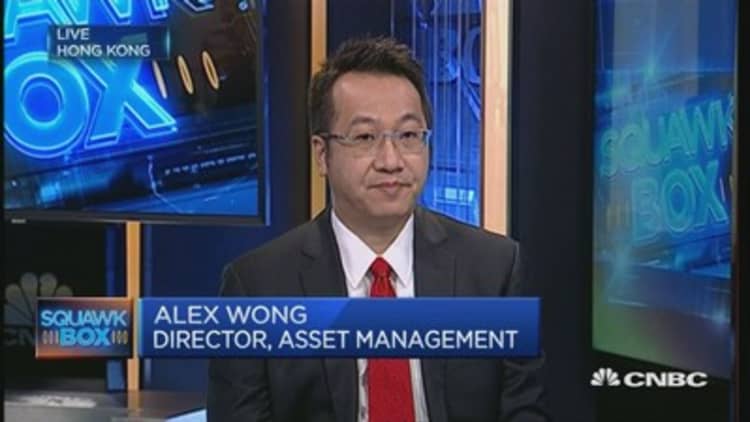Central banks around the world are upping their inflation forecasts, amid a surge in oil prices, but some analysts highlight a mixed picture when it comes to Europe with doubts over underlying trends in consumer price growth.
The European Central Bank (ECB), for example, back in September 2014 was projecting headline inflation of 1.4 percent for the euro zone in 2016. Since then, that figure has come down to 0.2 percent last month. But the downward trend, which observers have become accustomed to, seems to be about to change.
"In December, the ECB could actually go in the other direction," said James Nixon, chief European economist at Oxford Economics.
Based on the latest ECB data, the headline inflation across the member bloc should reach 1.2 percent in 2017 and 1.6 percent in 2018. The macroeconomic consultancy expects ECB President Mario Draghi to increase such forecasts, following the bank's December meeting, to 1.6 percent and 1.7 percent in 2017 and 2018, respectively. The increases are expected on the back of improvements in commodities, in particular energy prices.
On Friday morning, China also surprised with upbeat inflation data. The headline CPI (consumer price index) increased 0.6 percentage points in September to 1.9 percent year-on-year, representing a three-month high. More importantly, its consumer producer prices went up for the first time in more than four years, indicating that industrial deflation in the country could have come to an end.
Data from the International Monetary Fund showed early October that inflation in the U.S. could reach 2.3 percent in 2017, even though the Fed believes that inflation will not hit the 2 percent target before 2018. On Wednesday New York Fed President Bill Dudley said inflation estimates seem to be "well-anchored" and that "slack" in labor markets is a reason behind the central bank's continuing easy monetary policy.
Meanwhile in the U.K., inflation expectations are also on the rise, given the falling value of sterling. Speaking on Friday, Bank of England Governor Mark Carney said he is willing to tolerate some inflation overshoot to give room for economic resilience.
Too optimistic?

However, analysts are not totally satisfied with the more optimistic inflation forecasts, in particular in Europe, where core inflation is still lagging. Phillip Shaw, chief economist at Investec, told CNBC via telephone Friday that the low levels of the euro zone's core inflation are "a particular concern." Non-energy industrial goods, as well as wage growth, remain low across the 19 member nations.
Chris Scicluna, head of economic research at Daiwa capital markets, also noted that higher inflation expectations in the U.K. are likely to be temporary, with the economy set to slow "sharply" on the back of the Brexit vote.
Financial markets have started redirecting their attention to inflation prospects as the upcoming ECB meeting approaches. Expectations are that Draghi will not announce new monetary stimulus but could give indications as to what the central bank might opt for at the year-end regarding the future of its QE (quantitative easing) program.
"We do not expect the ECB to take meaningful monetary policy decisions next Thursday, October 20," UBS said in a note Friday.
"Our base case scenario remains that the ECB will announce a six-month extension of QE on December 8, with ongoing purchases of 80 billion euros ($88 billion) per month. Nevertheless, given the resilience in growth, the pick-up in inflation, and concerns about the negative side effects of low interest rates and bond yields, we believe a tapering decision on December 8 should not be dismissed easily," the bank added.


